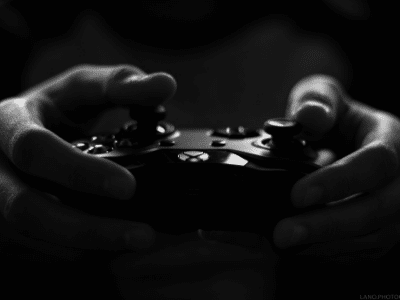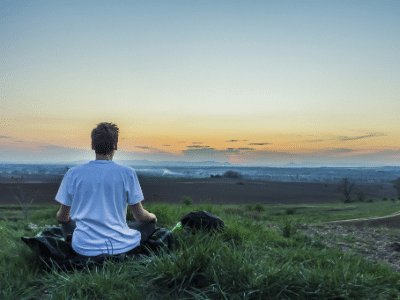Friday, February 26, 2021
Spiritual Influencers Say You Can Visit an Ex in Your Dreams, So I Tried It - VICE
* This article was originally published here
Wednesday, February 24, 2021
Tuesday, February 23, 2021
Monday, February 22, 2021
Saturday, February 20, 2021
Friday, February 19, 2021
Thursday, February 18, 2021
Wednesday, February 17, 2021
Tuesday, February 16, 2021
Saturday, February 13, 2021
The Magnificent Maggie Wilde!
This week is the incredible Maggie Wilde who is an expert at BRAIN TRAINING. You are going to learn how to shift your brain from the negative to the positive and literally change your life. Think of 3 wonderful things that happened you during the day as you put your head to the pillow so you can easily change tomorrow. Maggie Wilde is an incredible Therapist who can literally change your life.. Go to ThePotentialist.com to learn more about Maggie! To listen to more of Jewels' shows, go to https://loaradionetwork.com/jewels
* This article was originally published here
Thursday, February 11, 2021
Wednesday, February 10, 2021
Peace Of Mind: 4 Ways To Relax Your Mind Throughout The Day
We often yearn to feel peace. Whether we're overwhelmed at work, managing hectic family life, or struggling with our mental health, we may feel like we'll never find a sense of calm again.
It's easy to assume that only external factors determine peace of mind, but the truth is that you can take control of it more directly than you might realize.
What's more, when you do create peace of mind for yourself, you can enjoy everything from an enhanced sense of well-being to improved focus, optimism, and clearer thinking.
But how do you start? A vital first step is learning how you can cultivate a calmer, more peaceful mind throughout everyday experiences.
We'll start this guide by considering what peace of mind really is, before offering an in-depth explanation of four tried and true techniques.
Finally, we'll close by considering why and how self-hypnosis can help you to reach your goals.
The Meaning Of Peace Of Mind

However, if you want to learn how to get peace of mind more regularly then it's helpful to refine your idea of what you're looking for.
One way to describe it is as a feeling of inner stillness, as though your consciousness is the smooth surface of a lake.
Beyond metaphor, you can tell when you've found peace of mind because you notice two key factors – a new kind of clarity, and a different sort of focus.
Let's take a closer look at both of these ingredients of peace of mind.
A Clearer Mind

For example, if you are facing a decision with a clear mind, you can easily draw out the pros and cons of each choice, and can easily access your own feelings about your options.
Having a clear mind and experiencing peace of mind are intimately connected – each is a part of the other.
Clarity of thinking is necessary for peace of mind so that you can enjoy a greater sense of inner peace as you experience confidence and understanding when making all of life's important choices.
Meanwhile, peace of mind itself promotes increasingly greater clarity of thought, as your brain slowly filters out all of the things that don't really matter.
To see the importance of a clear mind, notice that it impacts every day of your life.
If you wake with a clear head and start your interactions that way, you take life (and each person in it) as it is, as opposed to getting stuck in misinterpretations and anxieties.
And this peaceful way of interacting with others promotes everything from healthy relationships to success at work.
Enhanced Focus

This includes focusing for long periods, to allow you to study, work, or engage in creative projects for productive hours at a time. Meanwhile, you can even drive further and for longer, and your reaction time is faster too (making you more adroit physically).
The fact that peace of mind leads to this elevated, intense ability to focus really underlines just how peace of mind can help you get ahead.
While most of us chase peace of mind primarily to feel better and more relaxed, it's an undeniably powerful tool in creating the future we want.
People who are still living hectic, disorganized lives, and battling a myriad of confusing emotions simply can't spend the same amount of time and energy on their projects.
Consequently, we thrive thanks to our consistent peace of mind, enjoying an edge in any type of competition.
4 Ways To Establish Peace Of Mind
Now that you have a much deeper understanding of exactly why a peaceful mind = peaceful life, let's look at how to find peace of mind in your everyday routine.
Followed together, these four steps will help to take control of your life, boosting your happiness and your productivity almost instantly.
1. You Can’t Control Everything

What is your first impulse, your first feeling? Do you get angry, feeling like the day is ruined and almost blaming yourself for planning a less than perfect day?
Or do you shrug, feel a little irritated, and make the best of things? If the former sounds all too familiar, you're probably one of the biggest obstacles to your own peace of mind.
The first step to establishing long-lasting peace of mind, then, is truly accepting that you can't control everything in your life.
Yes, your self-control and careful planning are valuable, but it only goes so far – it can't regulate the actions of others or insulate you from luck.
If you've ever been accused of being a control freak or simply wondered whether you are, turning down this aspect of yourself can have a huge impact on your mood. But how do you do this?
One useful tool is affirmations – positive statements you repeat to yourself to change your mental state. When you feel your urge to control the world around you kick in, try saying “I don't need to control everything. The universe will give me what I need.”
Another way to challenge yourself is to ask: in a day, will I still care about this thing I can't control?
What about in two weeks, or a month? Often, you'll realize the annoyance is simply passing, and feel able to let go of the need for control.
2. Have A Morning Routine

Secondly, even just the act of having a repeated routine helps to bring you peace of mind. You wake up knowing what to expect, and will simply find yourself flowing into the day rather than fighting the clock or stressing about what you need to do. Now, what should this morning routine involve?
There's no one routine that suits everyone, but there are certain ingredients that tend to promote a calm, happy morning routine.
Try some kind of mix of the following:
- Waking up earlier than you need to, in order to prevent rushing.
- Taking a moment to sit up in bed and breathe before getting up.
- Morning exercise (this can be anything from a yoga routine to a jog, using the treadmill, or dancing to your favorite song).
- Having a hot shower using products including essential oils.
- Dressing in the clothes you put out the previous night.
- Making a list of manageable tasks for the day.
- Eating a nutritious, enjoyable breakfast.
- Meditating or practicing mindfulness exercises.
Of course, the above is probably too much for anyone to do during a morning routine. Even just doing two or three of these things can set you up for an entirely different mood.
The goal is to make life comfortable, relaxing, and reassuringly organized (without trying to control everything!).
3. Get The Hardest Task Finished First

Not only can it promote peace of mind by helping to structure your time, but it is also a huge help if you want to stop procrastinating.
In fact, it's smart to have several tasks list – some which concern everyday tasks and others that focus more on your larger life goals. The latter is something you might check in with every week, using it to inform your daily task lists.
However, whether your task list creates more pressure or makes you feel better depends a lot on how you itemize tasks and the order in which you do them.
Firstly, try to commit to always getting the hardest task on your daily list out of the way first. This creates an instant sense of accomplishment and relief that will last for hours. If you avoid the hardest task, your awareness of it will follow you around and make you feel stressed rather than helping you to relax.
The second piece of advice to follow in order to get the most out of your task list is to break large items into smaller tasks.
For example, something like “build a new website for my business” will just generate stress and pressure. In contrast, splitting that into five tasks that lead to a complete site feels manageable and easier to plan.
4. Stop Worrying About Opinions

Whether you actually look to particular people for explicit approval or simply tend to imagine what they might think of you, it's very stressful to constantly feel like you have something to prove.
Often, our need to please others goes back to how we were raised, or to peer pressure, we experienced in school – and figuring out the roots can help you reject this way of thinking.
But no matter where it comes from, obsessing over potential bad opinions others may hold about you will only drag you down. In contrast, the goal should be to develop a view on which the only opinion that matters is your own.
Of course, this can sound like a tall order. One perspective-shifting trick that can help is to think about how much time you really give to judging others.
If you're like most people, you actually don't spend much time at all thinking critically about the things others do – especially those you love, who you're likely to support even when they make mistakes.
Consider, then, that it's likely people treat your life in the same way. In other words, they're probably not paying all that much attention, and when they do think about your life they are most likely rooting for things to go well for you.
A Peaceful Mindset Can Help You Start Self-Hypnosis!
So, you now have a range of techniques you can use to promote peace of mind and help you to become the happiest, most successful version of yourself.
However, if you're struggling to make these changes or you've made them but want to grow as a person, even more, self-hypnosis could be the perfect solution.
It can help you do everything from build confidence to stop eating sugar, all through tapping into your subconscious mind.
In a nutshell, self-hypnosis supports you in reaching goals that require changing the way you think, act, and feel.
So, whatever stands between you and peace of mind, there's a program available to help you tackle that aspect of your life once and for all.
Available at any time of your choosing to listen to in the privacy of your own home, see our extensive list of self-hypnosis recordings here.
The post Peace Of Mind: 4 Ways To Relax Your Mind Throughout The Day appeared first on The Law Of Attraction.
* This article was originally published here
Monday, February 8, 2021
The Desire Factor - Christy Whitman
Our Law of Attraction expert is none other than Christy Whitman who channels the Quantum Council and is a best selling author. Christy has over 20 years of teaching the Law of Attraction to the world and has had many workshops! Her latest book is called the Desire Factor where you not only get access to workshops, you gain access the Quantum Council. After listening, you will want to purchase this incredible book and get access to 4 powerful coaching sessions for just the cost of the book! Go to ChristyWhitman.com and purchase the book there. You will be so glad you did! https://loaradionetwork.com/jewels
* This article was originally published here
Saturday, February 6, 2021
Thursday, February 4, 2021
Wednesday, February 3, 2021
Connect To Your Higher Self To Unlock The Key To Manifesting
You may have come across people talking about reaching their highest consciousness. In particular, connecting with your higher self is said to help you use the Law of Attraction more effectively.
This is because such connecting is all about self-awareness and self-knowledge, helping you discover your true purpose. But what does it mean, exactly, to make a link with your highest self? And where should you start if you want to tune in to this part of yourself?
First, we'll deal with the question of how accessing your highest self can help you manifest. This involves looking at what the higher self actually is and contrasting higher consciousness with lower consciousness.
We'll consider the nature of our spiritual self, and why it is that we often end up stuck living as our lower selves. Most importantly, we'll guide you through the process of connecting to your higher self, offering three particularly powerful techniques for doing so.
How Is Your Higher Self And Manifesting Related?
So, let’s start thinking about the nature of our higher selves, and how they influence our manifestation potential.
As it turns out, if you open your mind to a more inspired, more intuitive part of yourself, you can develop all-new levels of awareness.
And with this awareness, you can better identify the kind of life that is right for you, and manifest it into reality.
What Is Your Higher Self?
What is a higher self? Basically, it is the core of who you really are. You might think of it as your soul – it's a kind of essence of who you are that goes far beyond your physical body.
It is the limitless, eternal aspect of you, that is responsible for your gut feelings and the most exciting flashes of inspiration you feel. This part of you – the higher self – knows all your secrets and your deeper desires.
However, it's common for most of us to have very limited contact with our higher selves. When you work on communication with this part of yourself, your inspiration and insight sharpen and become an everyday part of your life.
Higher Consciousness

While we can't settle such questions here, we can at least say more about what higher consciousness is, so that we can understand the impact it has on our lives.
Higher consciousness is the aim of transcendental spiritual exercises practices by monks, sages, and spiritual experts, and Law of Attraction practitioners sometimes refer to it as a “shortcut to manifestation.”
In simplest terms, it is consciousness that goes beyond ordinary awareness – as well as being deeply aware of our true natures and our real desires, we are more aware of the universe around us.
We have a sense of connection with everything else in our universe, and we're able to tap into that to empower ourselves.
Lower Consciousness

When you are most connected to your lower self, you're looking out rather than in most of the time.
In other words, rather than getting in tune with your secrets, your core values, and your connectivity with the universe, you're looking for immediate things in front of you.
We’ll look at this in more depth shortly, but the key characteristic is a kind of superficiality. While many of us are not in a state of low consciousness by choice, it can still hold us back and keep us stuck in a place that no longer serves us.
The good news is that if you want to connect with your higher self, you can transition to a new form of consciousness with time and patience.
Subconscious Manifestation

Since your subconscious mind has a huge impact on what you manifest, the difference between being in a high state of consciousness, and a low state of consciousness can be enormous.
To see this, imagine you're in a low state of consciousness, feeling sluggish and low and focusing only on what happens in front of you.
Do you think you'll manifest your dreams – find that ideal partner or get the job you've always wanted?
In contrast, imagine the subconscious manifesting triggered by someone in tune with their intuition, someone regularly experiencing sparks of inspiration and insight.
So, if you want to fulfill your potential and live your best life, tapping into your highest self is the safest route.
What Is Our Spiritual Self?

Roughly, any time you have a spiritual sense, this is a communication from the higher self. This can be an urge to go in a particular direction or to make a surprising choice, or it can be almost a premonition that something is going to happen.
You may also find that this spiritual side of you presents itself in dreams, repeating similar themes or symbols until you come to an important realization or make a pivotal choice.
At this point, you're probably curious about how you can strengthen this connection with the higher self – how you can hear your own spiritual self more clearly.
We'd suggest starting with three particular techniques. However, before you do so, it's wise to learn more about how we get stuck with a lower self, and how to recognize when that's happening.
Armed with this knowledge, you'll know when it's most urgent to use the three techniques we provide.
How Do We Become Stuck With A Lower Self?

It has an aversion to change, due to a fear that it won't adapt.
Consequently, it holds us back rather than encouraging our growth.
The lower self is not something we choose – it's something we end up aligning with when we are in difficulty, and then we get stuck.
For example, your lower self might be in the driver's seat of your consciousness after you lose your job, have a bad breakup, or go through a mental health crisis.
To move away from this type of consciousness, we first have to notice that the lower self is dominant.
Lower Self Characteristics

There's no one set way that that low consciousness presents, but there are some widely experienced warning signs.
In particular, look out for the following:
- Low energy and low appetite for change.
- A sense that you're not authentic when you're with others; you don't really feel “seen”.
- A strong focus on material objects (e.g, shopping beyond your means, locating your self-esteem in the things you own rather than the things you are).
- Feeling defensive when others ask you to think about your actions or to come to a compromise that takes both sets of needs into account.
- General vanity, and excessive time spent on appearance.
- More frequent feelings of anger and resentment.
- Thinking mostly about what you want, need, and prefer, perhaps before occasionally becoming aware that you haven't recently checked in with others about their feelings and experiences.
- Holding grudges even when events are no longer relevant, or even when you've received a sincere apology.
- Low mood or episodes of melancholy.
Theatrical generosity. In other words, you give to feel good and to look good, and even perhaps to atone for previous things, rather than because of a pure desire to help others.
However, it's vital at all times to be aware that we all have the capacity to slip into low consciousness and connect with the low self.
This self isn't malicious, and it doesn't mean that you're a bad person or a weak person. All humans have this side to them, and – as noted above – we all find it harder not to slip into low consciousness when life is difficult.
What matters is that you are willing to keep an open mind, to look out for the lower self appearing, and to work on connecting with the higher self instead.
How To Connect To Your Higher Self
You're now at a point where you can start to work on connecting with your highest self.
The following three approaches should provide almost immediate insight, but they also deepen with time and only become more effective.
Dreams And Lucid Dreaming To Discover Your Higher Consciousness

This is because your dreams reside in your subconscious, appearing to you when you're asleep and all your defense mechanisms are down.
There are a couple of things you can do to use dreams in order to deepen your connection with your higher self. One is to start keeping a dream journal – a log that you write in upon waking, capturing images, feelings, and symbols that come up.
Taken together, these dreams can help you see your blind spots and tap into your deepest desires, as well as your intuitions.
The second dream technique is lucid dreaming – actually influencing your dreams and interacting with the dreamscape to learn more about your inner life.
This is a skill anyone can learn to some degree, and it provides limitless avenues for self-exploration and development.
Make Personal Realizations Through Journaling To Achieve Your Highest Self

One such exercise is all about building an awareness of your gut reactions – reactions that come straight from your higher self.
Simply write down some questions, then immediately write down what your answer would be. Do not police it in any way, even if it seems like it doesn't make any sense.
Write down any feelings that are in your body at the time, too. Come back later, and think about what you can learn from the responses.
Some potential prompts include:
- What are my five core values?
- What do I want to do with my life?
- What legacy do I want to leave behind?
- How do I want my relationship to be?
In addition, don't forget the power of traditional journaling! That is, you can learn a lot about yourself just by reflecting in-depth on your day and your feelings about specific topics.
You can try stream-of-consciousness writing, where you write without an aim, or you can construct a careful entry where you go steadily deeper into your thoughts and feelings.
Use Guided Meditation To Find Your High Self

We'd encourage you to worry less about the type of meditation than about what makes you feel calm, reflective, and connected to yourself.
In a certain sense, all meditation is higher self-meditation, helping you connect with your higher self. However, you can also do specific guided meditation specifically targeting aspects of higher self-development.
Meditation is a particularly useful tool to have under your belt, as it's something you can do even when you're feeling tired or low.
After all, when you're stuck in low consciousness, you may not always feel like you can work on lucid dreaming or detailed journaling.
But you may just feel like you can do 5-10 minutes of meditation. Try to remember that there's always a way back to your higher self, even if it has been a long time since you last spoke.
The post Connect To Your Higher Self To Unlock The Key To Manifesting appeared first on The Law Of Attraction.
* This article was originally published here
